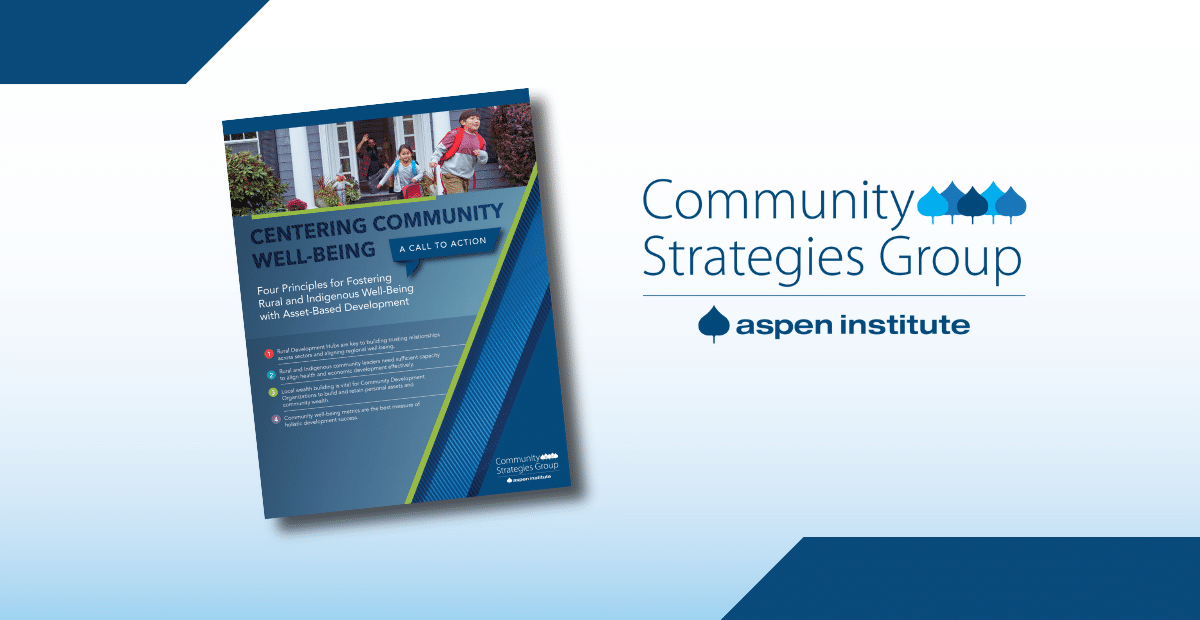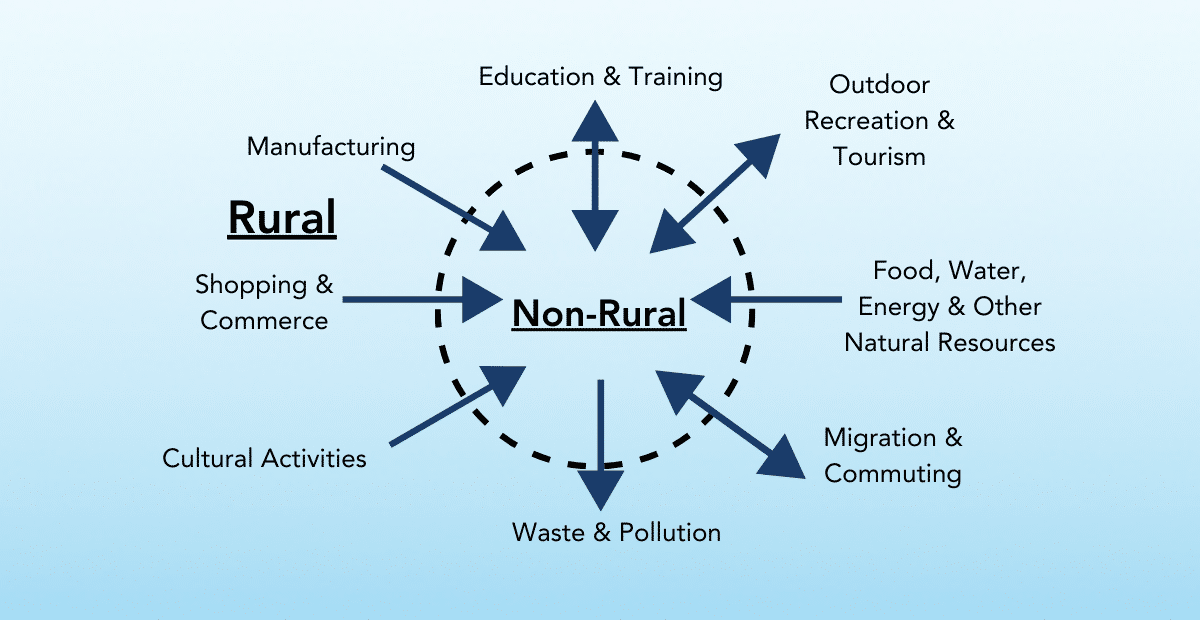One in five people in the U.S. lives in a rural or tribal community. Many rural places are dynamic and thriving with many addressing both opportunity and adversity with inventive approaches and solutions; other rural places are profoundly challenged with economies in stress and declining livelihoods and health outcomes – a situation especially true in lower-income communities and communities of color.
In short, the state of rural America is varied, complex – and often underreported. But a nuanced picture of rural and tribal communities is beginning to gain traction and become clearer. As rural life expectancy declines and mortality increases, there is a growing awareness beyond public health and academic circles that place – meaning where we live – is an important component of health and equity in America. There has also been some thoughtful reporting on the geography of inequality, how our rural and urban economies are diverging, and how GDP is an incomplete measure of well-being; each has important implications for rural and tribal communities. With this increased attention to complexity, there is also some acknowledgment that rural is not monolith— and might even be a hotbed of innovation.
How these phenomena interact and how they inform policy and practice must evolve to reflect the drivers of rural economies, health and equity across the diverse and ever-changing array of communities that comprise rural America.
This is the impetus for a new, two-year initiative: Thrive Rural: Connecting Rural Development, Health and Opportunity, an effort of the Aspen Institute Community Strategies Group in partnership with University of Wisconsin Population Health Institute with support from the Robert Wood Johnson Foundation.
Thrive Rural will work closely with community and economic development, health and civic engagement experts across the nation to create a shared vision and understanding about what it will what it will take to create dynamic, sustainable rural communities where all people can realize their full potential and live healthy lives.
Health and public health professionals have different training, ways of thinking and approaches than those who work in community and economic development. Over the past decade, health has shifted its focus upstream to the “social determinants of health,” such as employment status, housing, food, transportation and support networks. At the same time, the fields of community development and economic development are converging, with an increasing realization that neither community nor economy can stand or prosper alone. Indubitably, the goal of each of these fields in rural America is to improve outcomes and livelihoods; building shared vision and understanding about how each field does that and how they connect – or don’t yet connect – is a meaningful start.
Thrive Rural’s intention is to build a strong base for positive changes in policy and practice for rural America.
We’ll do this by pairing local knowledge and the practitioners’ experience with the best-evidenced research, asking hard questions and generating useful ideas. As we connect the dots between economic, social, environmental and health factors and outcomes, we will pay special attention to equity of opportunity and the intersection of race, class and place in rural America.
This collaboration brings together the strength, perspective and commitment of three distinct institutions. For more than 35 years, the Aspen Institute Community Strategies Group has worked with practitioners from the hills, hollows and highways of rural America – and with leaders from its markets, manufacturers and Main Streets. We are partnering with the University of Wisconsin Population Health Institute, ingenuity and innovation behind the County Health Rankings and Roadmaps, tapping their academic rigor and track record of creating accessible, useful tools that are changing how local leaders build more healthy and equitable communities. With rural health outcomes lagging, the Robert Wood Johnson Foundation has made rural health and well-being an integral part of its commitment to health equity nationwide.
By nature and convention, rural expertise is decentralized and dispersed. We will harness the platform of the Aspen Institute to serve as a missing hub – resource, switching station and centering force – for the numerous sectors, fields and organizations that are committed to building a better rural America. We strive not to be the experts, but rather to ensure rural people and places – in all their glorious diversity – are heard and in on the action. We aim to design peer-learning opportunities, concrete tools and policy proposals that are responsive to local wisdom, needs and experience.
We’ve set our sights high because the stakes couldn’t be higher.
While technology, trade and capital have transformed rural places, the pillars of rural policy have remained largely static and too-often tied to a legislative architecture that dates to the 1860s, 1930s and 1960s. Solving the challenges of our time – the causes and effects of climate change, lack of opportunity, growing inequality and social divides, and declining health – demand a radical rethinking of how we build inclusive rural communities that work for all. An overhaul is overdue. It’s about time.
But substantive policy reform doesn’t happen overnight. It starts with understanding what works and what’s needed. It requires asking questions and generating new insights; connecting practitioners, academics and policy makers across sectors to weave a more organized, unified and powerful network; and crafting new narratives about the problems, possibilities and change that is needed.
That’s the work we aim to do. And we’ll do it because rural communities are integral to our nation’s economy, culture, history – and future. We must do better – and we can.







